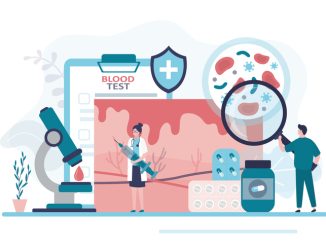
HIV testing is essential not only in preventing ill health, onward transmission, and premature death. In this article, Ian Jackson, Director of Contracting and Planning for Specialised Services in the London region, celebrates the NHS’ blood-borne virus (BBV) testing programme for its vital role in safeguarding public health and addressing health disparities
CREDIT: This is an edited version of an article that originally appeared on NHS England
In 2021, on World AIDS Day, NHS England announced a £20 million funding package for HIV opt-out testing in emergency departments (ED). This meant that everyone having a blood test in areas with high prevalence rates, namely London, Manchester, Salford, Brighton, and Blackpool, were tested for HIV unless they chose to opt-out. Opt-out testing means all blood tests carried out in EDs will include a test for HIV, Hepatitis B and Hepatitis C, unless you decide you don’t want it. This is the NHS blood borne virus testing programme, or BBV.
The programme has done exactly what it set out to do; identify HIV cases in people from every background, who may be unaware they have a virus, and provide them with lifesaving treatment so they can carry on living a long and full life. The latest figures show that in the 21 months the programme has diagnosed:
- 676 new patients with HIV
- 2,646 new patients with Hepatitis B
- 989new patients with Hepatitis C
In addition, 1,042 previously diagnosed patients, who had stopped engaging with health care services, have been brought back into the system and are accessing healthcare services. These patients who may live in deprived areas and find it difficult to access services, could otherwise be suffering poor health without this testing.
Opt-out testing isn’t a new idea – HIV clinicians have long believed that testing is a number one priority. Additionally, NHS England’s collaboration with the charity sector, the National AIDS Trust, The Elton John AIDS Foundation, and the Terrance Higgins Trust has repeatedly and effectively led the charge for funding to be made available.
The BBV programme is surrounded by energy and excitement, not just from third sector leadership, but from every single ED site and integrated care board (ICB) involved, as well as staff on the ground. The potential of opt-out testing is clear, as is the difference it can make to patient’s lives. As a result of the evidence we have gathered, we now have cross-party political backing for the programme. We have worked with the All Party Parliamentary Group on HIV and AIDS to advocate for this collaborative approach and highlight the end goal: eliminating transmission rates of HIV and Hepatitis C by 2030.
This is our best chance to reach these goals.
Greater results have been made possible through our key priorities:
- Implementing early testing – having a service in every London ED allows us to gather essential data and assess the potential impact of any future roll out.
- Testing for other blood borne viruses such as Hepatitis C – simultaneously testing samples has ensured that our resources and functions are used effectively. We have now added a test for Hepatitis B, scaling up our BBV screening programme.
- Investing in the community sector – In London 10% of the allocations to ICBs goes directly to the charity sector for HIV. Medical support is vital, as is peer led support for newly diagnosed patients and those who have dropped out of care. We are adding to the existing peer support programmes funded by NHS Trusts, the London Fast Track Cities initiative, and the Hepatitis C Trust to further improve the holistic care offered to people.
- Focusing on data – monthly figures on how many people have been found and offered life changing treatment and care are available to care providers.
The success of the programme is only possible thanks to the staff across the NHS and our partners, who are working hard to deliver it. Partnership working has also led to the expansion of a further 47 sites.
Our work will inform the National Institute of Health and Research’s approach to implement the service in other areas with high prevalence rates.
Anti-retroviral drugs for HIV are often considered to be the single greatest medical intervention in modern medical history. Testing is the key to preventing loss of life. It allows us to identify viruses in patients early and treat them, giving them the best opportunity of good health and normal life expectancy.
The success of the NHS blood borne virus (BBV) testing programme underscores the vital importance of early testing, collaborative partnerships, and ongoing community engagement in safeguarding public health and achieving broader healthcare objectives.


Be the first to comment